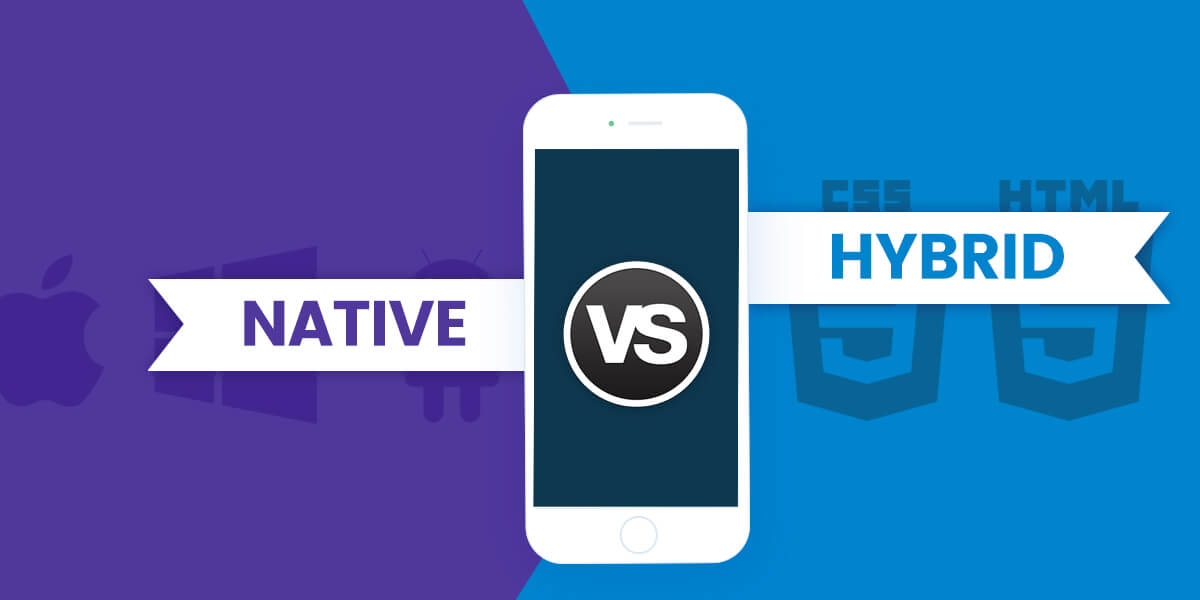Gone are the days when customers looking to buy phones had only limited brands to select from, for example, Motorola or Nokia. With the advancement in technology today, there are hundreds of smartphone brands available in the global market. These smartphones are powered by different operating systems; for example, smartphones from Samsung, OnePlus, Google Pixel are powered by Android, whereas iPhones are powered by iOS.
Further a smartphone without mobile apps is impossible. Mobile apps provide a helping hand to humans to efficiently fulfill their goals. From helping in studies, to buying groceries and other utilities, to paying bills from anywhere, to learning a new language, ordering food, and attending meetings, apps have become an indispensable part of our lives. Different operating systems use different platforms such as Android phones use Google Play Store, whereas iPhones use Apple Store for downloading apps.
Developers can choose whether they want to launch their apps simultaneously on various platforms or a single platform while in the mobile app development process. They can determine what type of app they want to build and how many platforms. In this post, we’ll be discussing the two most popular types of apps; Native and Hybrid, the differences between them, and which one to choose. Let’s take a brief look at these two apps and then move on further to discuss which one is better.
What are Native Apps?
Native apps are mobile applications written for a specific operating system or a particular platform in their preferred programming language. For example, iOS apps are written in Swift or Objective-C and Android apps in Java. These apps can use the device-specific softwares and hardware such as access to the camera, GPS, microphone, gallery, etc. Native apps work with the device’s operating system in such a way that they can perform faster and flexibly to meet all the requirements of the user. Moreover, these apps do not require consistent internet connectivity as they use the device’s functionality; they can work offline.
What are Hybrid Apps?
Hybrid apps are such applications that contain the features of both native apps and web apps and are written in CSS, HTML, HTML5, or Javascript. Like native apps, hybrid apps can be distributed through various app stores and installed in the device. Moreover, just like native apps, it can also use the native features of the device such as the camera, internal storage, etc. It is similar to web apps in a way that it needs an internet connection to load things. Web Apps are not an app but act like one, and they need not be installed as they can be accessed on a browser via the internet. Similar to web apps, Hybrid apps can also be accessed on a browser. Instagram and Uber are examples of Hybrid apps.
In simple words, we can describe hybrid apps as a web app built using Javascript or CSS and foiled in a native container that allows it to get downloaded through various stores such as the Apple store and Google Play Store. The native container helps load much of the page’s content as the user scrolls through the application. The main difference is that information gets downloaded in native apps, not the case in hybrid apps. Let’s move forward and discuss the differences between the two.
Native vs. Hybrid Apps
- Native apps are platform-specific and require to be written in separate programming languages for different platforms. In contrast to native apps, hybrid apps use a single codebase written in HTML or CSS for multiple platforms.
- Hybrid app development is less time consuming as only one codebase needs to be written for multiple platforms. When compared to Hybrid apps, Native app development is time-consuming because if required to be developed for various platforms, separate codebases need to be written.
- Native app development for multiple platforms is expensive, as more app developers are required for larger development time. In contrast, Hybrid app development is cheaper as fewer developers are needed for a shorter time to develop an app for more than one platform.
- Native apps are slower in updates as they require permission from the platform for launching new features, whereas Hybrid apps are faster in launching updates as they don’t need such permissions.
- When it comes to performance, Native apps are the best as they are developed with a platform-specific programming language. This enables app developers to optimize native apps according to the platform or OS for maximum performance. In Hybrid apps, unlike native apps, content doesn’t get downloaded but gets refreshed using the internet from time to time. Further, hybrid apps add an extra layer between the target platform and source code, making them slower than native apps.
- Native apps don’t require a consistent internet connection to work, unlike hybrid apps that require constant internet connection.
- Native apps are best for user experience and user interface. They are platform-specific built for a single app store and thus provide the best functionalities using the native features of the device and OS. Even though the hybrid apps act like native apps, they are not polished enough as the same application code is built for multiple platforms. Thus as they are not platform-specific, they lack behind in providing good user experience.
To conclude
After looking at the above points, we can conclude that the individuals or businesses with a hefty budget should go for Native apps to provide excellent user experience and performance. Whereas those with lower budgets, looking for a wider audience, and not focusing on superior performance and user experience should go for Hybrid apps. For example, developers working on building gaming apps should look forward to developing native apps as games require higher speed, excellent user interface, and performance. And those developers who need their app’s content to be updated daily and requiring active internet connection such as Instagram, Uber, and Gmail should choose Hybrid apps.
Author Bio- Hi There, I am Shaun Williams, a content writer with Goodfirms, a research platform for Cloud Computing, Ecommerce companies, Translation services companies, among many others. I enjoy communicating ideas and knowledge creatively and also ensure that the readers never suffer from boredom while reading my posts.














